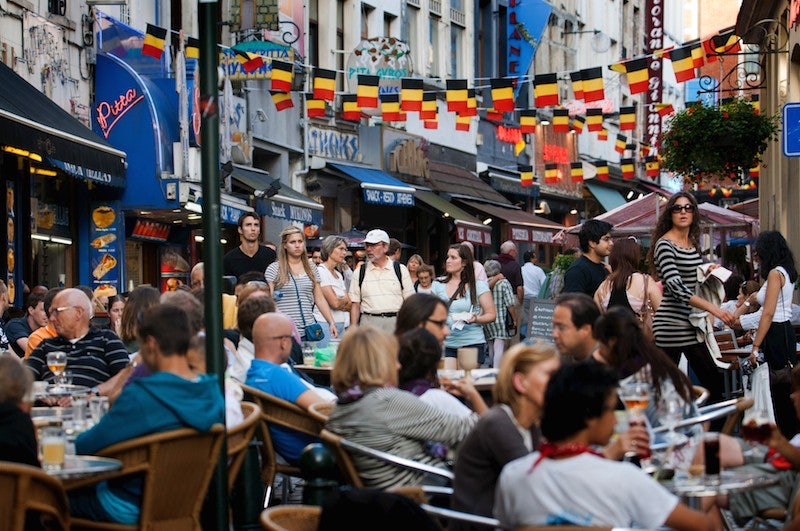Belgium's hospitality sector is increasingly reliant on students, part-time staff and retired people, as a new report has found that the hours worked by these kinds of employees has doubled since 2017.
According to a report by the Institute for Sustainable Development, published in L’Echo, some 29% of hours worked in hospitality last year were by "special status" employees, including students, casual workers, overtime, as well as "flexi-job" workers.
The flexi-job scheme allows people who already have a job or are retired to work unlimited hours on the side without being taxed. According to a survey by HR services group Liantis last year, a growing number of Belgian employers are using flexi-jobbers (36.4%), with part-time staff particularly prevalent in the hospitality sector (in which 58.3% of staff use this status).
Philippe Defeyt, economist with the Institute for Sustainable Development and author of the latest report, noted that the hours worked by special status workers in hospitality have doubled since 2017, reaching a total of 58 million hours in 2023.
Student jobs were the most common, with over 30 million hours recorded in 2023 – twice the amount in 2017. Meanwhile, flexi-jobs hours rose from 5 million in 2017 to 20 million in 2023.
“These jobs are cheaper (for the employer), but they provide security to neither the worker nor the employer, who lacks the resources for ongoing training,” said Luc Marchal, spokesperson for hospitality federation Horeca Wallonia.
Matthieu Léonard, chairman of the Federation Horeca Brussels (the equivalent Brussels-based hospitality federation) added, “public authorities must also act: we need urgent structural measures.”
Both cited a shortage of skilled labour and a need for a tax reform to reduce labour charges.

